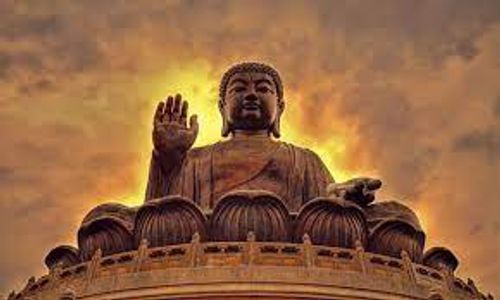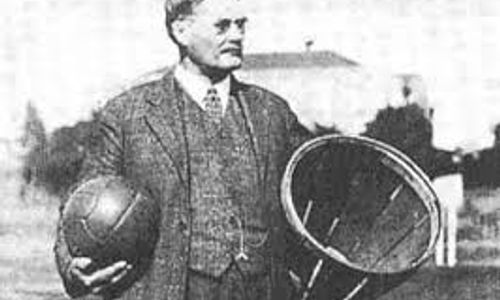Lucius Annaeus Seneca (Seneca the Younger, l. 4 BCE - 65 CE) was a Roman author, playwright, orator, and most importantly a tutor and advisor to the Roman emperor Nero (r. 54-68 CE). Influenced by Stoic philosophy, he wrote several philosophical treatises and 124 letters on moral issues, the Epistulae Morales (Moral Epistles). As Nero's tutor, he tried to pass on his philosophy of a virtuous life, and with the help of the prefect of the Pretorian Guard, Burrus, he tried to keep Nero's indulgences under control. Despite his best efforts and falsely accused of being part of a plot to assassinate the emperor, he was ordered to commit suicide by the increasingly paranoid Nero.
Born in Cordoba, Hispania (Spain) in 4 BCE, Seneca came from a wealthy family of Italian stock, which automatically made him a Roman citizen. He had two brothers, a mother, Helvia, and a famous father, Seneca the Elder, an author and teacher of rhetoric. Seneca spent his formative years studying both grammar and rhetoric in Rome, and while there, he developed a life-long interest in philosophy, attending lectures on Stoicism, a Greek philosophy befitting his character and evident throughout his treatises. According to one of its proponents, Epictetus, one must live a life of tranquillity, serenity, and composure, and peace of mind can be achieved through self-control.
WITH BURRUS AS HIS ALLY, THEY BECAME THE YOUNG EMPEROR'S ADVISORS, ATTEMPTING TO CONTROL HIS INDULGENCES & TEACH HIM HOW TO RULE WISELY.
Always of ill health, Seneca traveled to Egypt to live with his aunt, returning to Rome in 31 CE. It was after his return to the city that he gained a reputation as an orator, eventually becoming a quaestor. Unfortunately, he ran afoul of the emperors Caligula (r. 37-41 CE) and Claudius (r. 41-54 CE). He was supposedly implicated in an adulterous affair with Julia Luvilla, the younger sister of Caligula, and was banished to Corsica in 41 CE. However, while in exile he did not sit idly, he continued his study of philosophy and wrote a series of treatises.
In 49 CE, he was recalled to Rome through the influence of Agrippina the Younger, Caligula's sister and mother of the future Roman emperor Nero. In his book The Annals of Imperial Rome, Tacitus wrote of his return:
So she now secured the recall of Lucius Annaeus Seneca from exile and his appointment to a praetorship. She judged that owing to his literary eminence this would be popular. She also had designs on him as a distinguished tutor for her young son Lucius Domitius Ahenobarbus (Nero). Seneca's advice could serve their plans for supremacy…. (255)
Tacitus added that she believed he would be devoted to her - owing to his recall - and hostile to her husband, Claudius, who had exiled him. Secure in his position as a tutor and advisor to the future emperor, Seneca married Pompeia Paulina. It was also at this time that he became close friends with the prefect of the Pretorian Guard, Sextus Afranius Burrus. It was a friendship that would eventually benefit them both. Tacitus called them “partners in power.”
When young Nero turned twelve, Seneca took over his duties as Nero's tutor, and with Burrus as his ally, they became the young emperor's advisors, attempting to control his indulgences and teach him how to rule wisely. Both were extremely influential on the young would-be emperor but by totally different methods. Tacitus wrote that Burrus' strength lay in his “seriousness of character” and efficiency while Seneca was a man of high principles.
Aside from writing Nero's speeches, Seneca would teach his young protégé philosophy and literature with the hope that these subjects would guide him into practicing good government. The famed orator would also arouse in him a love of both music and the theatre; something his peers would one day regret. One curious note on Seneca's definition of good government: the emperor would have to tolerate the animosity of those around him. One must know the difference between a good emperor and a tyrant.
Owing to his strong Stoic beliefs, Seneca died with dignity in 65 CE. Seneca had learned from the teachings of the Greek philosopher Epicurus that “one should not fear death”. As the day arrived, he spoke to his friends and embraced his wife. She had planned to die with him but Nero gave orders to stop her. His death would not come easily. He slit the arteries in his arms but, owing to his frugal diet and fragile frame, he did not die. He drank poison - as did the famed Greek philosopher Socrates - and was then placed in a hot bath where he was suffocated by the steam.
Seneca suffered from a respiratory condition throughout his life and even contemplated suicide. To him, if a person believed there was little hope, suicide was a possible answer. “… if one's body becomes useless for performing its functions, is it not fitting to draw the struggling mind out of it?” (72) However, he would not end his own life because of illness if there was a cure, but he would consider it if he lost his mind and had only breath. He added, “Do you think there is anything crueler to lose from life than the right to end it?” (73)
“Death is the undoing of all our sorrows, an end beyond which our ills cannot go; it returns us to that peace in which we reposed before we were born.” (13)
“If a person pities the dead then that person must also pity the unborn. One must know how to die well. No one goes cheerfully except those who have prepared”. He wrote to Lucillius speaking of his own preparation:
“As for myself, I wouldn't refuse the addition of more years. But I will say that I lacked nothing that would render that life happy…I regard every day as though it were my last.” (49)
Seneca lived and died adhering to his strong Stoic principles. Dying with dignity, he did not fear death. It was a part of the natural cycle of life.
Seneca's treatises espouse his views on how a person ought to be, living a life of tranquility, serenity, and composure. As a tutor and advisor to the young Emperor Nero, he tried to pass on his philosophy of a virtuous life; be a good leader, not a tyrant. Unfortunately, his teaching fell on deaf ears. After the death of Agrippina, Nero was free to do as he wished and became the despot Seneca had hoped to prevent. Although not part of the Piso conspiracy to assassinate Nero, Seneca's days were numbered. The paranoid emperor who saw conspiracies everywhere was cleaning house, and his old tutor became a victim. Fortunately, Seneca's letters have endured. They have influenced countless generations of writers.








